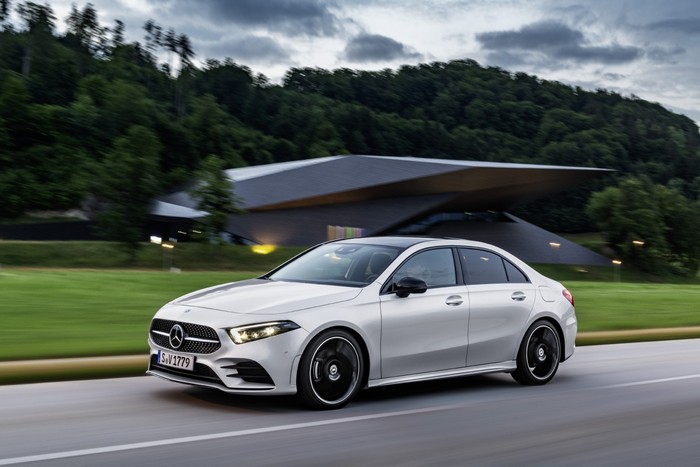
Mercedes, BMW could co-develop compact car platform
Designing self-driving cars is expensive.
The reports claiming BMW and Mercedes-Benz parent company Daimler will collaborate in the not-too-distant future are intensifying. The arch rivals could co-develop the platform that will underpin their next-generation compact models, according to a German media outlet.
The tie-up would place the BMW 1 Series and the Mercedes-Benz A-Class on a common platform, German newspaper Handelsblatt learned from anonymous inside sources familiar with the negotations. Mercedes-Benz introduced a new A-Class in early 2018, and BMW is expected to replace the current-generation 1 Series before the end of the 2019, so the jointly-developed models wouldn't arrive until well into the 2020s.
At first glance, this has little implication for the American market; the 1 Series isn't sold here, and the A-Class is barely making its debut on our shores as a four-door sedan. However, it's important to keep on mind that both of these nameplates ride on modular platforms also found under other models. The next-generation 1 Series is expected to shift to an evolution of the front-wheel drive architecture found under the Europe-only 2 Series Active Tourer, the X1, and every Mini. The A-Class shares its bones with every compact Mercedes, including the CLA, the GLA, the B-Class, and the upcoming GLB.
All told, if the report is accurate, at least a dozen Mercedes-, BMW-, and Mini-badged models could end up sharing a platform. Odds are it will be front-wheel drive, but compatible with xDrive and 4Matic. There's no indication that Mercedes and BMW will share engines, though executives have allegedly considered a tie-up in the powertrain department before.
The need to develop costly autonomous technology is driving BMW and Daimler into each other's arms. They're investing billions into self-driving cars, so they need to cut costs in other areas. Sharing a compact car platform makes sense; both companies' current platforms are in their second (and, probably, last) generation, and designing a new architecture from scratch would cost billions on each side. The odds of recouping that investment in a timely manner are low; compact sales remain relatively strong, especially in Europe, but the margins in the compact segment are thinner than ever.
Handelsblatt reports the talks are at the embryonic stage, and a deal is far from done. Notably, insiders worry engineers from both companies would resist the tie-up.